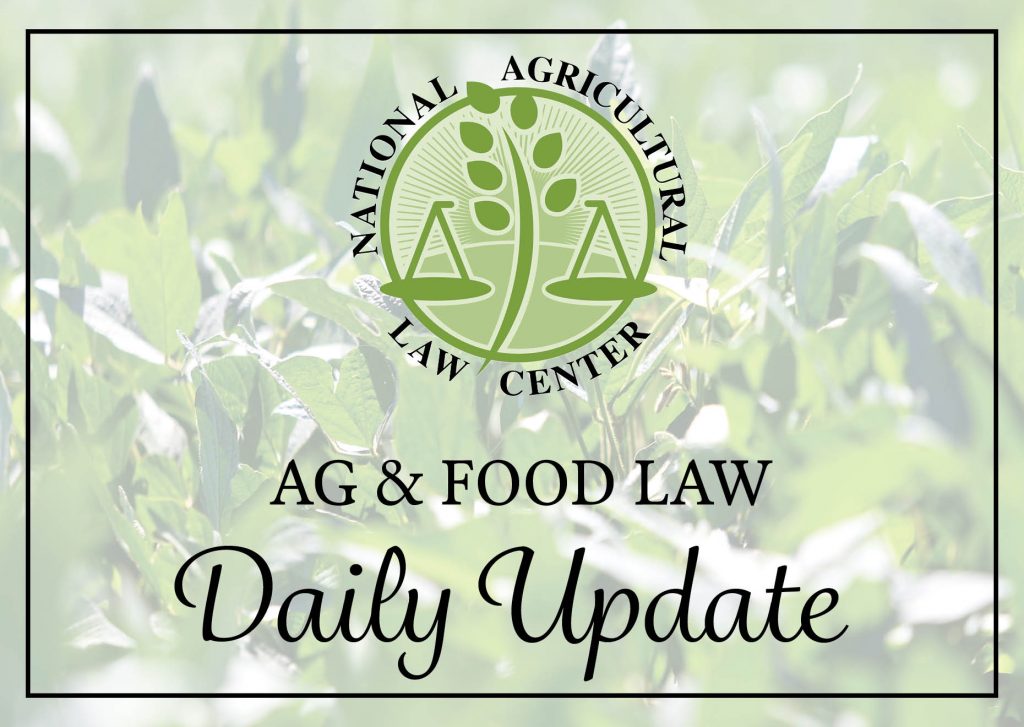A comprehensive summary of today’s judicial, legislative, and regulatory developments in agriculture and food. Email important additions HERE.
JUDICIAL: Includes state special use permits
In Egan v. Cty. of Lancaster, 308 Neb. 48, 952 N.W.2d 664 (2020), the Supreme Court of Nebraska considered whether the plaintiff had standing to challenge the issuance of a special use permit for the construction and operation of a poultry production facility. Ultimately, the court concluded that the plaintiff did not have the standing necessarily to challenge the permit. This case arose after the Lancaster County Board of Commissioners (“the Board”) granted Randy Essink a special use permit allowing him to construct and operate a poultry facility on land within the county’s agricultural zoning district. The plaintiff challenged the decision to issue the permit in court, arguing that the facility would cause adverse effects on the environment and public health. The lower court concluded that the plaintiff lacked standing to challenge the permit because the plaintiff lived 13 miles from the proposed operation and had not shown that she would be injured by the permit’s issuance. Standing relates to a court’s ability to address the issues presented in a case. The focus of standing is not whether a plaintiff’s claims have merit, it is on whether a plaintiff is the right party to assert the claims. Generally, a party will have standing if they can suffer or will suffer an injury in fact. The Nebraska Supreme Court has said that an injury must be “concrete in both a qualitative and temporal sense,” and that the alleged harm must be “actual or imminent, not conjectural or hypothetical.” Here, the Nebraska Supreme Court agreed with the lower court that the plaintiff could not have standing because in living 13 miles away from the proposed operation, the plaintiff was unable to show that she would suffer an injury in fact. Therefore, the Nebraska Supreme Court upheld the lower court’s decision that the plaintiff could not challenge the issuance of the permit because she lacked standing.
REGULATORY: Includes FEMA, NOAA
Federal Emergency Management Agency
Final rule identifying communities where the sale of flood insurance has been authorized under the National Flood Insurance Program that are scheduled for suspension on the effective dates listed within this rule because of noncompliance with the floodplain management requirements of the program. Info here.
National Oceanic and Atmospheric Administration
Notice that the South Atlantic Fishery Management Council submitted Amendment 12 to the Fishery Management Plan for the Dolphin and Wahoo Fishery off the Atlantic States for review, approval, and implementation by NMFS. Info here.
